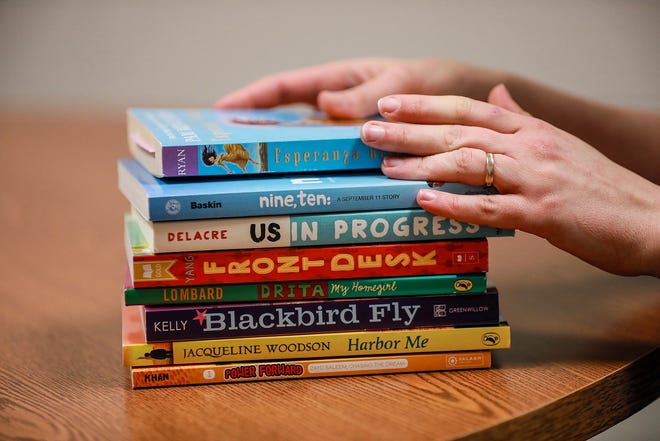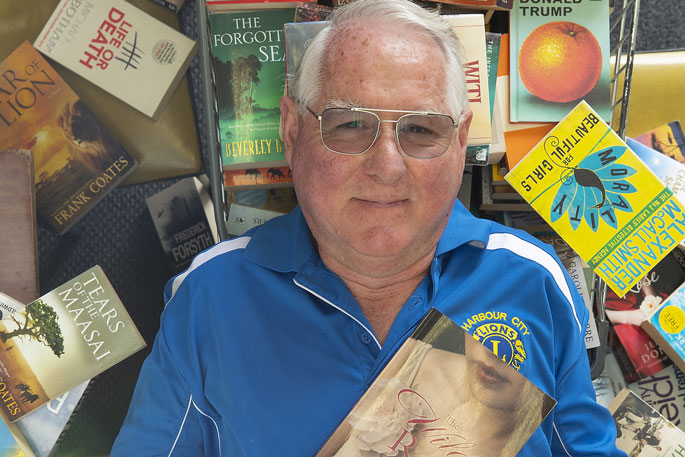Reading books can change your life, help you find a job

Perry Smith is a retired Air Force officer who lives in Augusta.
Last week I had a session with 40 staff from the Eisenhower Regional Hospital in Fort Gordon. The commander, Army Colonel Heidi Mon, had invited me to lead a discussion with her book club. The discussion book was the fourth edition of “Rules and tools for leaders.”
Each book club participant had read the book before our session together. After my introductory comments and a video of my four-minute Today Show interview with Katie Couric, the Q&A began. In attendance were about twenty officers and non-commissioned officers. About 20 others joined the session virtually.
More from Perry Smith:Giving gifts in the new year: some thoughts
During my introductory remarks, I told two stories about my experience with books.
1. When I was in graduate school in the 1960s, I asked my mentor an important question. What should I do to prepare for the written and oral tests of my doctorate? He told me to finish my classes, pass the two language exams and read a thousand books in my field. This is the day I decided to learn to read quickly. The skill has stayed with me for over fifty years. Since that time, I’ve had a love affair with books.
2. One of the stories I told was an interview I conducted when I was Commandant of the National War College. One of the major federal agencies had appointed a senior official for a position within the faculty. When I asked him one of my favorite questions. “What good books have you read lately?” His response was, “I have a really busy schedule, I haven’t read a book in five years.” Long story short, she wasn’t hired to be a faculty member. She lived a busy but superficial life. I went on to explain to the members of the book club a major point: suppose that in five or ten years, you are interviewed for a job that you really want. Guess what job you won’t get if you can’t answer the question “what books have you read”.
Here are some sample questions I’ve received from US Army medical professionals – followed by my responses. All questions related to my book on leadership.
Q. When did you decide you wanted to write and publish books?
A. After my doctoral dissertation was completed in 1967, The Johns Hopkins Press offered to publish it. I quickly realized how much I loved researching, writing and publishing books. Every time one of my newly published books arrives with us, it’s a moment of celebration.
Q. When you were on active duty, how did you manage the balance between work and family?
A. First, my speed reading skills meant that I didn’t have to spend a lot of time in my office. I was able to quickly access my inbox. Second, whenever possible, I incorporated family into my daily and weekly schedule. Third, I worked long hours during the week, but avoided working on Saturdays and Sundays. I often had to break this rule, especially during my six years at the Pentagon. But when I was a field commander, I had more control over my schedule.
Q. How did you maintain high morale when your organization went through long periods of stress – like the pandemic that lasted two years.
A. I kept my optimism and I spent a lot of time visiting and listening to the troops. Also, if things got messed up, I usually took the blame.

Q. How do you treat a subordinate who has a major character flaw?
A. I suggested studying the contributions of Robert Hare and Hervey Cleckley and examining the Hare/Cckleley Checklist. If this person fits most of the categories on this checklist, the person in question probably needs therapy. In some cases, withdrawal from the organization will be required. (I should have recommended Robert Hare’s books, “Snakes in Suits and Without Conscience.”)
In summary, I saluted Colonel Mon for creating a book club for his colleagues.
Both military and civilian professionals must bring intellectual breadth and depth to the work. The best way to do this is to follow a disciplined reading schedule. I recommended one good book per month (at a minimum). I also urged everyone to read Grant’s “Give and Take.” It changed my life.
One final point (from my co-author, Brigadier General Foley): “Reading a good, credible book is one thing, acting on what you learn from the book is essential if you want to make a difference in your life and the lives of others. ”





